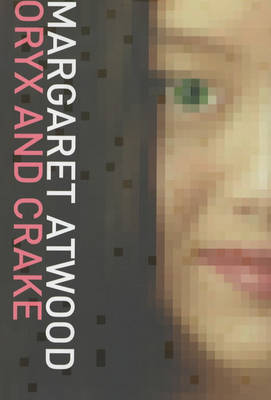Reviewed by gmcgregor on
As an adult, Jimmy has renamed himself Snowman (after The Abominable), and as far as he knows, he's the last "real" human left alive. There's a group of genetically engineered people, the Children of Crake, but they're not the same. He's left alone, in a devastated world, with only his memories and his guilt over the role he played in it all. These memories make up the bulk of the book, with very little actually happening in an actual plot sense. Jimmy does venture back to the last place he lived in search of food and sunscreen and medicine, which forces him to confront what happened with Glenn, who became Crake, and the beautiful, reserved Oryx, who was involved with them both. How they died, and how the virus that wreaked havoc on the rest of the world was released.
It's a character study as much as a work of speculative fiction, and that's really Atwood's strength anyways. She loves to dig into the ways our little flaws can set in motion events that spiral out of control, to take the tensions underlying society and drag them up into the open. I find it really interesting that this book was written in 2003, the year I graduated high school, because so much of it seems to apply to the kinds of debates that continue to be relevant even now: just because we have the technology or knowledge to do something, does that mean we should? How do we weigh morality? Whose morality gets weighed? The writing date of the book does mean there are some things that come off anachronistic (she posits a world focused on disc-based storage, in which email is a primary communication method), a lot of it is startlingly prescient.
Clearly I liked it, but it was not without failings. The biggest, for me, was its lack of developed female characters. Jimmy's mother is intriguing, but we see relatively little of her and through mostly his eyes, reflecting on the way her choices impacted him. Oryx remains to the reader just as mystifying as she largely is to Jimmy, and while I could see Atwood intending this as a statement of how men tend to project their own stories only the women they claim to love (Jimmy is convinced he knows parts of Oryx's past, which she herself denies), I wish we'd gotten more of her perspective. And as much as I enjoy character-driven novels, I wish it had been structured differently, so that it was taking place in the present rather than largely in the past. These are relatively minor issues, though. On the whole, this book is fascinating and thought-provoking and one I'd recommend widely (though maybe not younger/less sophisticated teenagers).
Reading updates
- Started reading
- 29 August, 2018: Finished reading
- 29 August, 2018: Reviewed
